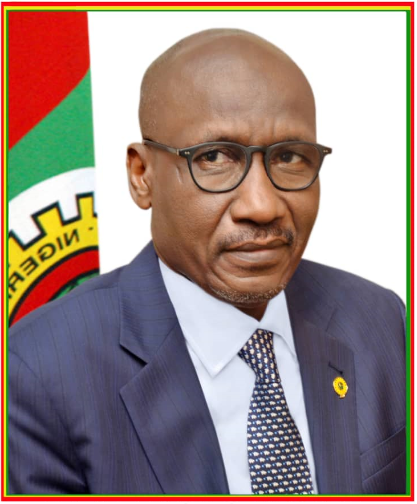The Group Chief Executive Officer of the Nigerian National Petroleum Corporation Limited (NNPCL), Mallam Mele Kolo Kyari, has stated that despite the attendant economic challenges, the removal of fuel subsidy has thus far liberated the Nigerian oil markets, preventing significant disruption and eliminating cross-border smuggling of petroleum products to neighboring countries.
The NNPCL boss made these remarks while delivering the 2024 annual lecture of the Obafemi Awolowo University (OAU) Faculty of Science at the Oduduwa Hall on Wednesday.
He said, “The passage of the long-awaited PIA in 2021, the subsequent NNPC transition to a fully commercial limited liability energy company, and the removal of fuel subsidy, which freed the market and eliminated cross-border smuggling of petroleum products from Nigeria, have created greater opportunities for NNPC to play an active commercial role, sustain profitability, and deliver greater value to our fast-growing population.”
Kyari, who spoke on the topic, “Energy Security, Sustainability, and Profitability in Nigeria: Advances, Challenges, and Opportunities,” noted that “Nigeria’s energy security can be ensured through local adequacy as new refineries come on board and NNPC refineries are fully restreamed. There is an opportunity to further improve Nigeria’s energy security resilience by utilizing our locally abundant natural gas resources to support Compressed Natural Gas (CNG) production as an environmentally friendly and cheaper alternative to petrol.”
He stressed that guaranteeing energy security has been the traditional mandate of NNPC since its creation by decree 18 of 1971, emphasizing that Section 64(m) of the Petroleum Industry Act (PIA) 2021 has reiterated this mandate, making NNPC the legal supplier of last resort for security reasons, with all associated costs on the account of the Federation.
He said, “In keeping with this mandate, NNPC has built refineries located in Port Harcourt, Warri, and Kaduna to refine crude oil into petroleum products. The location of the refineries was informed by the need to reduce product travel distances and achieve a secured and efficient distribution system from refineries to the 21 inland depots in Aba, Enugu, Makurdi, Yola, Benin, Ore, Mosimi, Satellite town-Lagos, Ibadan, Ilorin, Suleja, Minna, Jos, Gombe, Maiduguri, Kano, and Gusau.”
According to him, “These depots have a total storage capacity of over 3.9 billion liters, connected by a network of 5,120 km of pipelines designed to transport crude oil to refineries and evacuate refined products for distribution across the country.”
However, the NNPCL boss said incessant pipeline vandalism and oil theft have continued to pose a damaging threat to the realization of the corporation’s projected revenue by draining the country of millions of dollars yearly, with associated damage to the environment and sustainable business operations.
He said that despite the challenges, NNPCL was still able to make over N3.4 trillion in Profit-After-Tax (PAT) between 2020 and 2022 and that top academic institutions like OAU can consolidate these gains by safeguarding the national energy security through effective research.
In his welcome address at the lecture, the OAU vice-chancellor, Professor Adebayo Simeon Bamire, thanked the NNPCL boss for striving to achieve multiple gains for the corporation despite the consistent sabotages from oil vandals and thieves in the country.
He said the institution has taken some critical decisions towards positioning the University’s research and innovation ecosystem as a hub for research, innovation, and knowledge creation.
“We continue to strengthen our capacity as a regional ICT University across West Africa with innovative outcomes from the African Centre of Excellence in Software Engineering.
“The University is also collaborating with the Nigeria Data Protection Commission (NDPC) for the training of Data Protection Officers (DPOs) in Nigeria. Recently, the university won two additional Centres of Excellence – (i) TETfund Centre of Excellence in Digital Literacy, and (ii) The Nigerian Communications Commission (NCC) Centre of Excellence in Telecommunication.
“I am happy to let you know of another Centre of Excellence – Center of Excellence for Combined Energy Smart Innovations and Technologies (COE-CESIT), a joint initiative of Trans-Disciplinary Research Teams in the Faculty of Science, Center for Energy Research and Development (CERD), and researchers from across the globe. The long-term plan of the OAU COE-CESIT is to provide smart solutions for future challenges in the energy sector,” the VC stated.
Among the dignitaries present at the lecture include Professor ‘Tola Badejo, who chaired the lecture; the Dean, Faculty of Science, Professor Adebayo Simeon Bamire; and Mr. Femi Aduwo, the President, Centre for Convention on Democratic Integrity (CCDI).
